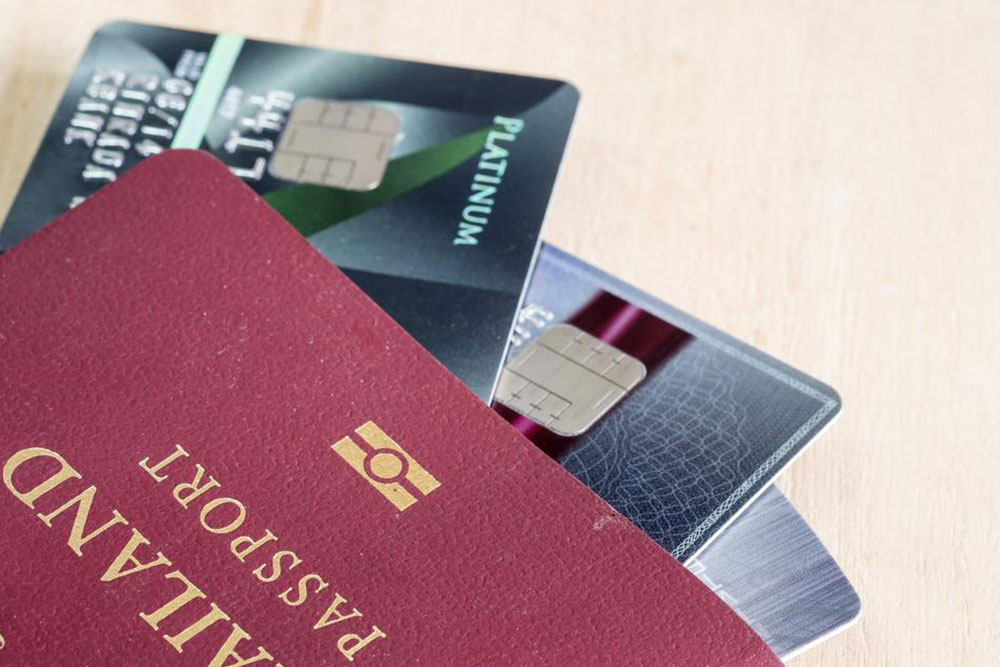Comprehensive Guide to International Bank Wire Transfers and Money Transfer Methods
Learn about the most reliable and efficient methods for international bank money transfers. From digital wallets and global agencies to traditional wire transfers, this comprehensive guide explains the key considerations, benefits, and limitations of each method, helping you choose the best option based on your needs. Whether for personal remittances or large business transactions, understand the costs, speed, and security involved in cross-border money transfers to ensure smooth and safe transactions worldwide.

Effective Strategies for Sending Money Internationally to Bank Accounts
In our interconnected world, transferring money across borders has become a common necessity for individuals and businesses alike. Whether you're sending funds to a family member abroad, paying for international services, or conducting cross-border business transactions, understanding the available options for international money transfers is vital. These methods vary significantly in terms of cost, speed, security, and convenience, so choosing the right approach depends on your specific needs and circumstances.
International money transfer processes can be complex and involve a range of considerations, including transfer fees, exchange rates, transfer speed, security, and ease of access. While many assume that such transfers are straightforward, the reality is that choosing the optimal method requires understanding the nuances of each option. From online digital wallets to traditional bank wire transfers, there are multiple reliable methods to consider, each tailored to different requirements and budgets.
Below, we explore some of the most popular and trusted methods for international money transfers to bank accounts, highlighting their advantages and potential limitations.
Online Digital Payment Platforms
One of the most convenient ways to send money internationally is through digital payment platforms. These services allow users to transfer funds quickly from the comfort of their homes, often using smartphones or computers. Popular platforms include PayPal, Skrill, Xoom, Google Wallet, and Amazon Pay. They are widely used for personal remittances, small business transactions, and online purchases.
Digital wallets offer fast authentication processes, which can be completed within minutes, making them ideal for urgent transfers. The fees associated with these services tend to be minimal for small amounts, especially when compared to traditional banking options. Many platforms also provide real-time tracking of transactions, so both sender and recipient can monitor the progress. The transfer process typically involves linking your bank account or credit card and verifying your identity, which adds a layer of security.
It is important to note that while digital payment platforms are cost-effective for small transactions, larger sums may incur higher fees or require additional verification steps. Moreover, the recipient usually needs a compatible account with the platform or a linked bank account to receive funds. Transparency in fee structures and exchange rates is usually maintained, but users should always review these details beforehand to avoid unexpected costs.
Global Money Transfer Agencies
For both individuals and businesses needing quick and secure international transfers, global money transfer agencies present a reliable solution. These agencies operate extensive networks worldwide, with physical offices and online platforms that facilitate fast, secure transactions. Notable examples include Western Union, MoneyGram, and WorldRemit.
These agencies are particularly useful when speed is essential — many transactions are completed within 24 hours, sometimes even instantly, depending on the transfer method and destination. They support various options for recipients, including cash pickup at physical locations, direct bank deposits, or transfers to digital wallets. This flexibility makes them popular for emergency situations or urgent payments abroad.
The process is straightforward: the sender visits an agent location or logs into the agency’s platform, provides recipient details, and makes the payment. The recipient can then pick up the funds at a physical location or receive them directly into their bank account or mobile wallet. Fees vary based on the amount, transfer speed, and destination country, but agencies often provide transparent fee structures and currency exchange rates.
While these services are generally secure and reliable, users should be aware of potential limits on transfer amounts and may need to furnish identification documents, especially for higher sums or recurring transfers. The global reach and speed of these agencies make them ideal for urgent, high-value international transactions.
Bank Wire Transfers
Bank wire transfers remain a trusted and widely-used method for international money transfer, especially for large or recurring transactions. This process involves transferring funds directly between bank accounts using the SWIFT network or other international banking protocols. The sender initiates the transfer through their bank, either in-branch, via online banking, or through phone banking, providing recipient bank details and authorized signatures, if necessary.
One of the main advantages of wire transfers is their high security level, making them suitable for substantial amounts of money. They are also reliable, with a well-established network that ensures transfer accuracy and traceability. However, the process can be slower compared to digital options, often taking between one to five business days, depending on the banks involved and the countries’ banking systems.
Bank wire transfers involve various costs, including transfer fees charged by the sending bank, receiving bank, or both. Exchange rates also influence the total transfer amount, as banks often add a margin to the mid-market rate to cover currency conversion. It's important for users to check these rates and fees beforehand to estimate total costs accurately.
To initiate a wire transfer, both sender and recipient must have active bank accounts capable of handling international transactions. Proper documentation and identification are typically required for security and fraud prevention. Despite the higher costs and longer processing times, wire transfers are often preferred for transactions requiring formal documentation, large sums, or regulatory compliance.
Overall, each method of international money transfer offers unique benefits and potential drawbacks. Digital wallets and online services provide speed and convenience, suitable for small to medium transactions, while global agencies and traditional bank wires offer security and reliability for larger sums. Selecting the right method depends on factors like transfer amount, urgency, cost sensitivity, and recipient preferences. Before initiating any international transfer, it’s essential to compare options carefully, consider all associated fees, and verify the reputation and reliability of the service providers to ensure your funds arrive safely and efficiently.
This comprehensive guide provides valuable insights into the most effective methods for transferring money across borders, helping users make informed decisions tailored to their specific needs and circumstances.





